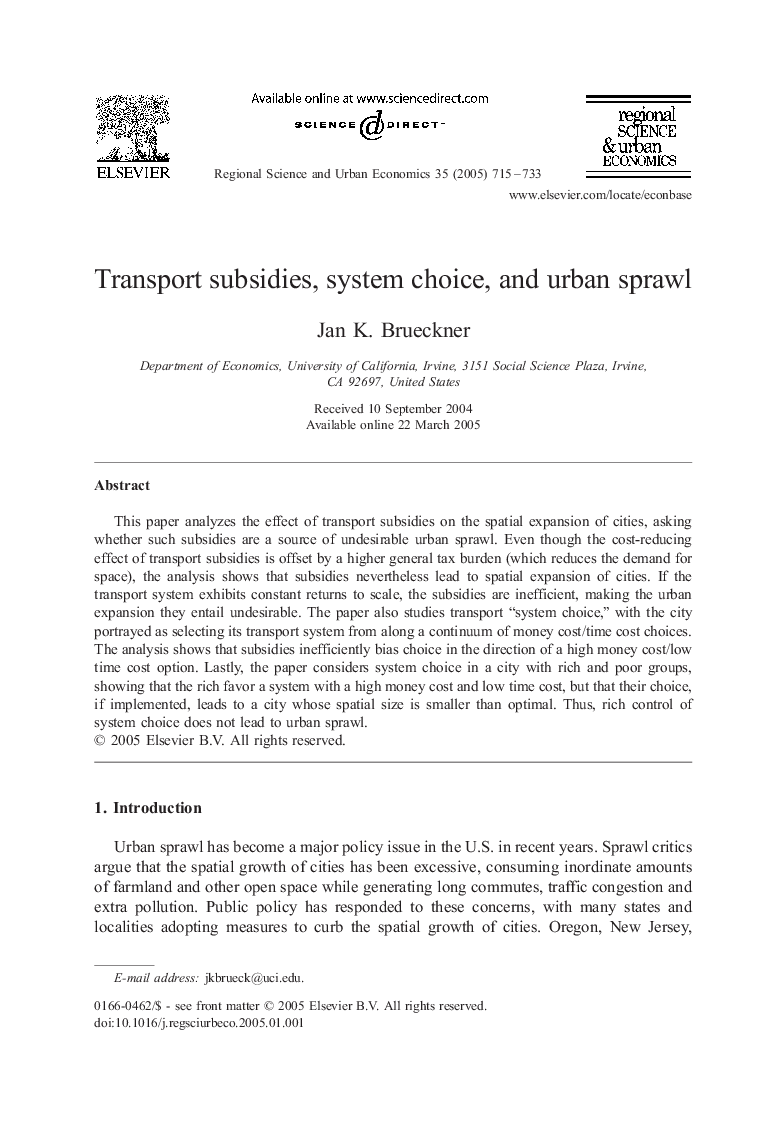| Article ID | Journal | Published Year | Pages | File Type |
|---|---|---|---|---|
| 10482461 | Regional Science and Urban Economics | 2005 | 19 Pages |
Abstract
This paper analyzes the effect of transport subsidies on the spatial expansion of cities, asking whether such subsidies are a source of undesirable urban sprawl. Even though the cost-reducing effect of transport subsidies is offset by a higher general tax burden (which reduces the demand for space), the analysis shows that subsidies nevertheless lead to spatial expansion of cities. If the transport system exhibits constant returns to scale, the subsidies are inefficient, making the urban expansion they entail undesirable. The paper also studies transport “system choice,” with the city portrayed as selecting its transport system from along a continuum of money cost/time cost choices. The analysis shows that subsidies inefficiently bias choice in the direction of a high money cost/low time cost option. Lastly, the paper considers system choice in a city with rich and poor groups, showing that the rich favor a system with a high money cost and low time cost, but that their choice, if implemented, leads to a city whose spatial size is smaller than optimal. Thus, rich control of system choice does not lead to urban sprawl.
Related Topics
Social Sciences and Humanities
Economics, Econometrics and Finance
Economics and Econometrics
Authors
Jan K. Brueckner,
